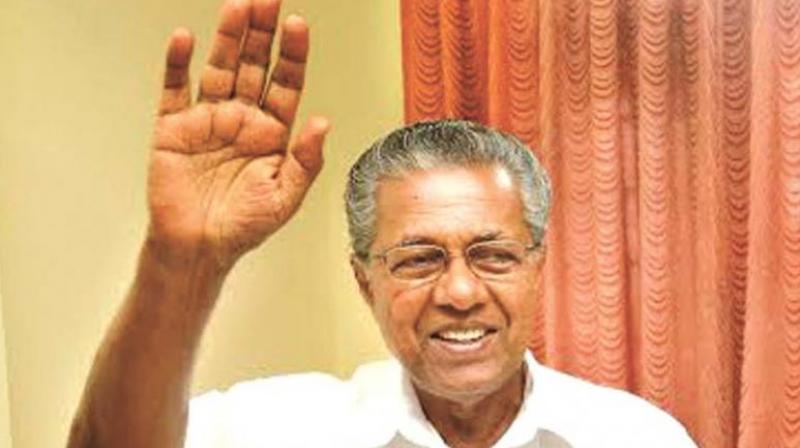Rain gods ditch LDF government's Haritha Kerala Mission

Thiruvananthapuram: The rains have refused to cooperate and the LDF government’s ambitious multi-dimensional development project, Haritha Kerala Mission, has got off to a poor start.
The extent of fallow land in the state is being identified as part of the Mission, but with the soil turning bone dry it is not clear how farming can be introduced in these uncultivated patches of land.
The agriculture department has been given two major tasks under the Mission. One, identify fallow lands and launch cultivation in these unused swathes so that the area under paddy cultivation swells from the existing two lakh hectares to three lakh hectares by 2020. Two, promote vegetable farming. A part of the first task - identifying uncultivated lands - is nearing completion. The next step is to launch cultivation. “As things stand, no farming activities can be carried out till June, and till it is October the farmer will not get even sustenance income from his fields,” said Chittur MLA K. Krishnankutty, a farmer. With both the monsoons keeping away, the soil has lost its moisture.
“Without water content in the soil, it is virtually impossible to carry out planting," a senior agriculture officer in Kollam district said. The government’s strategy was to cultivate the third (puncha) crop, especially paddy pulses and sesame, and other summer crops like vegetables in newly-identified fallow lands during January.
The sowing of the third crop, and also the summer crops, requires residual moisture in the soil. This had never been a problem even in severely rainfall deficient years like 2013 or 1983 because though the southwest monsoon had failed in these years, the northeast showers had ensured that the soil had enough moisture content. “It is the northeast rains that come in handy for the second (mundakan) crop. Therefore, even after the harvest of the second crops there would be some moisture content, or residual moisture, in the soil. In 2016, both the monsoons under-performed badly, leaving the soil dry and unfit for cultivation.
In 2016, the second paddy sowing was done in less than half the usual area. "Even in the restricted areas where sowing had been done, the results have been uneven. In some areas the crops have wilted and in others where paddy has been harvested the output has fallen considerably," an agriculture officer in Wayanad said.
As if it had gone on a mourning mode, the state did not celebrate ‘makara koythu’ (the state’s harvest festival that coincides with ‘pongal’ in Tamil Nadu) this year. "It was just that there was no harvest to celebrate this year," Mr Krishnankutty said.

